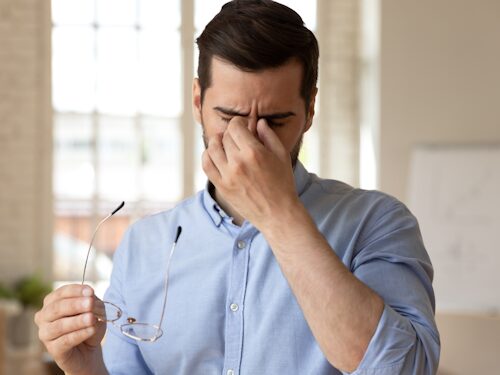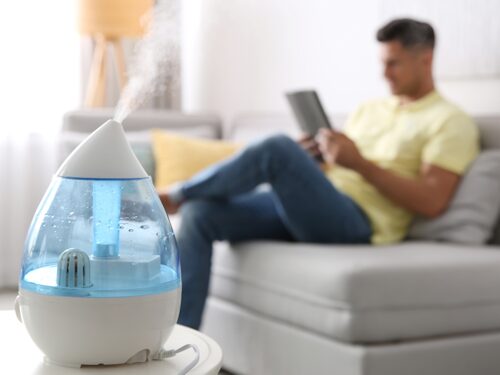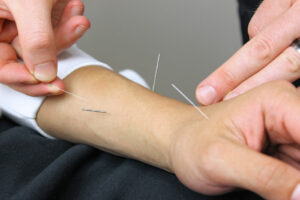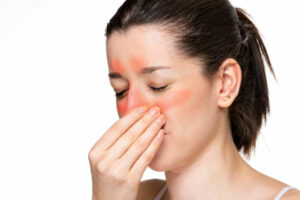Quick Summary
Dry Eye Syndrome is a common condition caused by inadequate tear production or poor tear quality, leading to discomfort, irritation, and visual disturbances. Conventional treatments often provide only temporary relief, failing to address the root causes. At Evolution Medical Care, we take a holistic approach by incorporating science-backed natural treatments like Acupuncture, Remedial Massage, Herbal and Mineral Supplements, and lifestyle modifications to support eye health. Key strategies include optimising nutrition (omega-3s, hydration, vitamins), reducing screen time, managing stress, and improving sleep quality. Our treatments focus on long-term relief by addressing inflammation, nervous system regulation, and hormonal imbalances.
Dry eye syndrome, a common yet often misunderstood condition, affects millions worldwide. Characterised by insufficient lubrication and moisture on the eye’s surface, this syndrome can lead to discomfort and visual disturbances, impacting daily life.
At Evolution Medical Care, we understand the intricacies of this condition and are dedicated to offering natural, effective management strategies. These approaches stand in stark contrast to conventional treatments, which often offer only temporary relief and come with their own set of drawbacks. In this comprehensive guide, we’ll explore the science behind dry eyes and the benefits of our holistic, natural methods to manage this condition effectively.
Understanding Dry Eyes
Definition and Symptoms
Dry eye syndrome, medically known as Keratoconjunctivitis Sicca, is a condition characterised by a lack of adequate tear production or poor tear quality. This deficiency leads to inflammation and damage to the eye’s surface. Common symptoms include:
- Persistent dryness
- Itching or burning sensation
- Redness
- Blurred vision
- Light sensitivity
- A feeling of having something in your eyes
The Science Behind Dry Eyes
At the core of dry eye syndrome is a disruption in the delicate balance of tear production and drainage. This imbalance can be influenced by various factors, including hormonal changes, autoimmune diseases, and environmental conditions. Additionally, the nervous system plays a crucial role in regulating tear secretion and maintaining eye health.
- Tear Production and Hormonal Imbalances: Tear production is a complex process influenced by hormones. Hormonal imbalances, particularly during menopause or as a result of thyroid disorders, can significantly affect tear quality and quantity.
- Nervous System Involvement: The nervous system is integral in controlling the secretion of tears. Any disruption in this system, whether due to stress, neurological disorders, or aging, can impact tear production.
Common Causes
Several factors contribute to the development of dry eye syndrome:

Environmental Factors
- Dry, Windy, or Smoky Conditions:
These environments can increase the evaporation rate of tears from the eye surface. In windy conditions, the constant air flow can rapidly dry out the tear film, while smoke can introduce irritants that disrupt the natural balance of tear composition. Additionally, low humidity environments, often found in air-conditioned or heated indoor spaces, can also lead to increased tear evaporation. - Air Pollution:
Pollutants and allergens in the air can cause irritation and inflammation of the ocular surface, affecting the glands responsible for tear production. This inflammatory response can alter the quality and quantity of tears, contributing to dry eye symptoms.
Screen Time
- Reduced Blinking Rate:
Focused activities such as reading, working on computers, or using smartphones typically lead to a decreased blink rate. Blinking is essential for spreading tears evenly across the eye surface and stimulating tear production. Reduced blinking results in less tear distribution and increased tear evaporation, leading to dry eye symptoms. - Visual Strain:
Prolonged screen use can cause visual strain, which may indirectly affect tear film stability. The strain on the visual system can disrupt the normal functioning of the tear-producing glands, leading to an imbalance in tear composition.
Aging
- Decreased Tear Production:
As part of the natural aging process, the lacrimal glands (tear-producing glands) may become less efficient, resulting in decreased tear production. This reduction is particularly prevalent in post-menopausal women, likely due to hormonal changes affecting glandular function. - Alteration in Tear Composition:
Aging can also lead to changes in the composition of tears. The balance of water, oils, and mucus in tears is crucial for maintaining eye health. With age, this balance can be disrupted, affecting the tear film’s ability to adequately lubricate and protect the eye.
Contact Lens Wear
- Mechanical Irritation:
The presence of contact lenses on the eye’s surface can cause mechanical irritation, especially if the lenses are not properly fitted or are worn for extended periods. This irritation can lead to inflammation of the corneal and conjunctival surfaces, disrupting normal tear film stability. - Oxygen Deprivation:
Contact lenses, especially those that are not highly permeable to oxygen, can reduce the amount of oxygen reaching the cornea. Oxygen is vital for maintaining corneal health and function, including tear production. Insufficient oxygen can lead to dry eye symptoms.
By understanding these underlying causes and mechanisms, we pave the way for more targeted and effective management strategies.
The Impact of Dry Eyes

Physical Effects
- Discomfort and Irritation:
One of the most immediate impacts of dry eyes is the constant discomfort and irritation. This can manifest as a gritty or scratchy feeling, as if there’s something in the eye. - Vision Problems:
Dry eyes can lead to blurred vision and increased sensitivity to light. Over time, the lack of adequate lubrication can damage the surface of the eyes, potentially leading to more serious visual impairments.
Emotional and Psychological Impacts
- Stress and Frustration:
The persistent discomfort of dry eyes can lead to increased stress levels. This is particularly true for individuals whose work or hobbies require extended focus, as their ability to perform these tasks can be significantly hampered. - Reduced Quality of Life:
The ongoing battle with dry eye symptoms can affect one’s quality of life. Activities such as reading, driving, and using digital devices can become challenging, leading to a sense of frustration and limitation.
Role of Inflammation and Immune System
- Inflammation:
Chronic dry eyes can lead to an inflammatory response on the surface of the eye. This inflammation can further damage the cells responsible for maintaining a healthy tear film, exacerbating the dry eye condition. - Immune System Responses:
The immune system can become involved in response to the chronic irritation and inflammation of the eyes. This can lead to a cycle where the immune response further aggravates the condition, creating a feedback loop that makes symptoms worse.
Conventional Approaches
- Temporary Relief:
Many conventional treatments like over-the-counter eye drops offer only temporary relief, requiring frequent application without addressing the underlying cause of the dry eyes. - Lack of Holistic Treatment:
Conventional methods often fail to consider the individual’s overall health and lifestyle factors that could be contributing to dry eye syndrome.
The Need for More Natural and Long-Lasting Solutions
There is a growing demand for more natural and comprehensive approaches that not only relieve symptoms but also address the root causes and overall well-being of individuals with chronic dry eyes.
Natural Management Techniques

Diet and Hydration
- Omega-3 Fatty Acids:
Consuming foods rich in omega-3 fatty acids, like fish, flaxseeds, and walnuts, can help reduce inflammation in the body, including the eyes. - Hydration:
Adequate water intake is crucial for maintaining the quality of tears. Staying well-hydrated helps in keeping the eyes lubricated and healthy. - Vitamin-rich Foods:
Incorporating foods high in vitamins A, C, and E can support eye health. These vitamins are known for their antioxidant properties and their role in maintaining the health of ocular tissues.
Environmental Modifications
- Reducing Screen Time:
Implementing regular breaks during prolonged use of digital devices can help reduce eye strain and maintain a healthy blink rate. - Humidity Control:
Using a humidifier in dry indoor environments like air conditioned offices can help maintain sufficient moisture levels in the air, reducing tear evaporation.
Sleep and Stress Management
- Cortisol Levels:
Chronic stress can lead to elevated cortisol levels, impacting overall health and potentially exacerbating dry eye symptoms. Effective stress management techniques, like mindfulness and relaxation exercises, can help mitigate these effects. - Quality Sleep:
Ensuring adequate and quality sleep is crucial for eye health. During sleep, the eyes are replenished with essential nutrients and moisture, aiding in the recovery and maintenance of a healthy tear film.
These natural strategies offer a comprehensive approach to managing dry eyes, focusing on lifestyle modifications and overall well-being. They align with the holistic treatment philosophy at Evolution Medical Care, emphasising the importance of addressing the root causes of health issues.
Science-Based Treatments Offered by Evolution Medical Care

Acupuncture
- Acupuncture, a cornerstone of Traditional Chinese Medicine (TCM), offers significant benefits for managing dry eyes in comparison to conventional therapy according to studies on thousands of patients. By stimulating specific points on the body, acupuncture can enhance nerve function and blood flow to the ocular region. This stimulation can promote the secretion of tear-film maintaining substances, helping alleviate dry eye symptoms.
- Acupuncture influences the release of neurotransmitters and endorphins, which can help regulate the body’s response to stress and inflammation, common contributors to dry eye syndrome.
Remedial Massage
- Remedial massage can help alleviate the muscle tension around the neck, shoulders, and face, areas that can indirectly impact eye health. By reducing this tension, blood circulation to the head and eyes is improved, which can be beneficial for those suffering from dry eyes.
- The relaxing effect of massage helps in overall stress reduction, thereby potentially lowering cortisol levels, a factor that can exacerbate dry eye symptoms. Enhanced circulation can also aid in maintaining optimal eye function and health.
Herbal and Mineral Supplements
- SPM Active (Omega-3 Supplement):
SPM Active is a specialised formulation designed to support the body’s natural resolution process, a crucial element in combating inflammation. This product is rich in omega-3 fatty acids, known for their potent anti-inflammatory properties. In the context of dry eye syndrome, the omega-3s in SPM Active can help improve the oily layer of the tear film, essential in preventing tear evaporation and maintaining eye comfort. - Bio Q-Absorb Ubiquinol (Antioxidant Complex):
Bio Q-Absorb Ubiquinol is a unique supplement that contains ubiquinol, a highly absorbable form of coenzyme Q10 (CoQ10). Ubiquinol is a powerful antioxidant, playing a vital role in protecting cells from oxidative stress and supporting energy production at the cellular level. For patients with dry eyes, this antioxidant support is crucial in maintaining the health and function of ocular tissues, thus reducing the risk and severity of dry eye symptoms. - TCM Formula ‘Qi Ju Di Huang Wan’:
This traditional Chinese herbal formula is known to nourish the liver and kidney Yin, concepts in TCM that are believed to be closely related to eye health. The herbs in this formula can help address underlying imbalances that may contribute to dry eye symptoms.
Lifestyle and Dietary Advice
- Tailored advice is provided to each patient based on their specific needs and the common causes of dry eyes identified earlier. This includes personalised dietary recommendations, hydration strategies, and lifestyle modifications aimed at reducing the symptoms and prevalence of dry eye syndrome.

Prevention and Long-Term Management
Ongoing Lifestyle Adjustments
- Maintaining a lifestyle that supports eye health is vital for long-term management. This includes continued attention to diet, hydration, and environmental factors.
- Regular breaks during prolonged screen use can also help in managing symptoms effectively.
Long-term Benefits of Natural and Science-Based Treatments
- The holistic approach offered at Evolution Medical Care focuses on long-term benefits rather than just symptomatic relief.
- By addressing the root causes of dry eyes through natural and science-based treatments, patients can experience sustained improvement in their eye health and overall well-being.
Final Thoughts
In conclusion, managing dry eyes effectively requires a comprehensive approach that goes beyond conventional treatments focused on the eyes alone. At Evolution Medical Care, we emphasise natural and science-based strategies that address both the symptoms and underlying causes of dry eye syndrome. From tailored dietary and lifestyle advice to specialised treatments like Acupuncture and Herbal and Mineral Supplements, our approach is designed to provide long-lasting relief and improved eye health.
We encourage individuals suffering from dry eyes to consider these holistic and effective management techniques. By understanding the condition and adopting a multi-faceted treatment plan, it’s possible to significantly improve quality of life and eye health.
Would you like some assistance?
If you’re experiencing symptoms of dry eye syndrome, don’t wait for them to affect your quality of life further. Reach out to us for a consultation. Our team is committed to providing personalised, research-backed care to help you manage your symptoms effectively.
Book an appointment online or give us a call at (02) 4709 6727 – we look forward to discussing how we can assist in your situation and support your journey towards better eye health.






